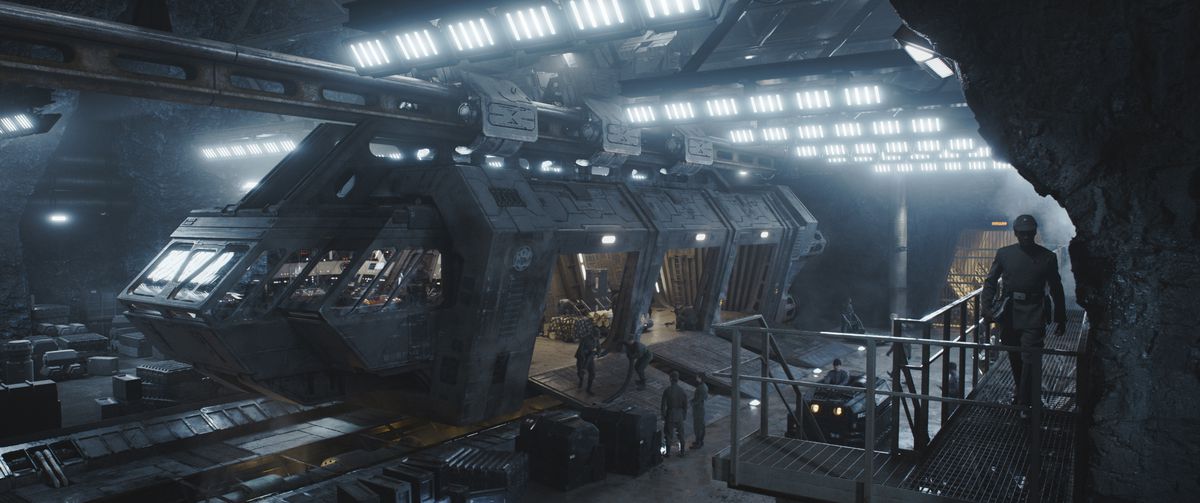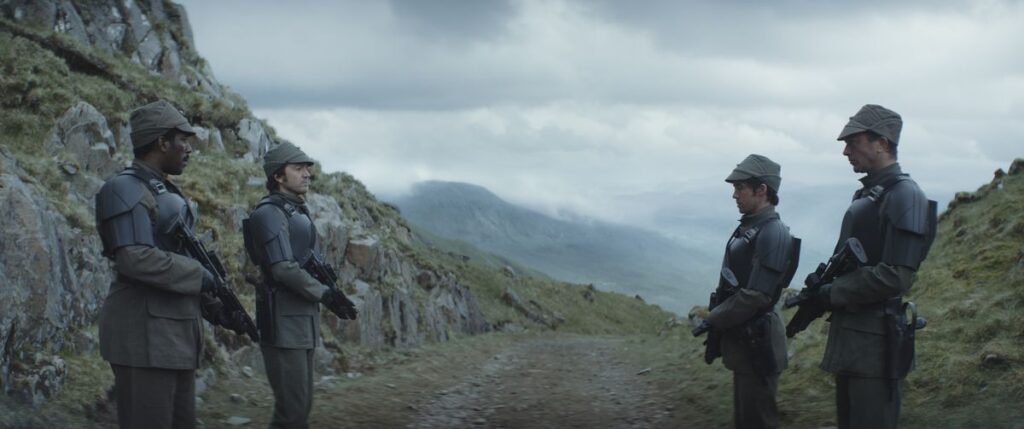It’s not hard to take a new Star Wars show with a bit of apprehension. Like Marvel movies and shows, they’re announced at press conferences as a collection of titles and dates, maybe with a couple actors and a logline if the executives on stage are feeling generous. Art can come from this, but this is not how it is made.
This is the source of my initial apprehension toward Andor, and frankly, every new Star Wars project. Even with the things that sound exciting with the limited information we’re given (The Acolyte sure sounds neat!), none of it matters until it’s here, in front of us. The show has to come out, and each episode must convince the viewer to watch another. Midway through its first season, Andor has, with astounding ease.
With this week’s “The Eye,” Andor clinches it: Andor is likely the best live-action Star Wars show yet, and is well on its way to making a case for itself as one of the best Star Wars stories this side of The Last Jedi. And it largely does so by just being damn good television, sinking into the world of Star Wars the way only a TV show with a specific focus and mission can.
Image: Lucasfilm
“The Eye” is what happens when careful plotting is accompanied by painstaking character work. It’s a heist episode the series has been building to, but its success is not just due to anticipation, but restraint. Much has been made of Andor’s careful resistance to traditional fan service — no one, blessedly, has a bad feeling about the droids they’re looking for while trusting the Force and hey that’s no moon — but also, the show has excelled at simple drama. People talking: to their bitter, domineering mothers; to their comrades about radical politics; to their coworkers in dull government offices. It’s not flashy, but it’s TV, and it’s why we watch — so that the spectacle of episodes like “The Eye” hit that much harder.
And what a damn gorgeous spectacle. The titular “Eye” — a celestial phenomenon that’s kind of like a meteor shower and an aurora borealis happening at the same time — gives any scene with an outside view a soft emerald glow that’s both entrancing and ominous. It’s the kind of effect that recasts very normal Star Wars scenes, like pilots climbing into their TIE Fighters, with mesmerizing grace, an effective contrast to the tense scenes deep inside an Imperial vault as Andor’s heroes risk their lives.
[Ed. note: Spoilers for Andor episode 6, “The Eye,” follow.]
Despite being the longest episode of Andor thus far, it’s also the most straightforward: Cassian Andor (Diego Luna) and the small group of rebels (not yet Rebels) he’s been hired to finally execute their big heist of an Imperial vault. It succeeds, but goes awry, ratcheting up the tension until a thrilling escape that not everyone survives.

Image: Lucasfilm
Ending the episode on that note would likely have sufficed, but “The Eye” goes a bit further, choosing to ditch the easy ending for a more difficult story that’s committed to the complicated characters Andor has spent half the season fleshing out. At the end of the heist, the team of rebels are not brought any closer together; there is no unity. In fact, they barely make it out: Taramyn Barcona (Gershwyn Eustache Jnr) dies before they escape, and Karis Nemik (Alex Lawther), the young radical, suffers a mortal injury in their dramatic exit.
Only Cassian, Skeen (Ebon Moss-Bachrach) and leader Vel Sartha (Faye Marsay) make it to safety, and even then, there is ultimately no greater cause that binds them beyond the job they’ve just finished. Skeen quietly suggests to Andor that they take all the money and run, and Andor replies by killing him. He then tells Vel about Skeen’s plan and his personal decision to take his cut and run, like he always said he would. A lesser story would bask in these characters’ success; Andor offers nothing but raw nerves instead.
Doing anything other than this would be a disservice, though. By the time Cassian Andor is introduced in Rogue One, he’s a man who would die for the cause. It is no small thing, to learn what it is you would die for. Thus far, Andor is succeeding because it’s taking that journey seriously, and not dodging a fundamental truth about organizing: It is hard for someone to look past their self-interest and dedicate themselves to a cause. They have to find their own reason, and they have to be reached in a way that they understand. Maybe for Cassian, that’s in Nemik’s final act, leaving Cassian his political manifesto, the thing he chose to die for. Maybe it’s a multitude of things. No Star Wars show has ever made me this eager to see what might happen next.

